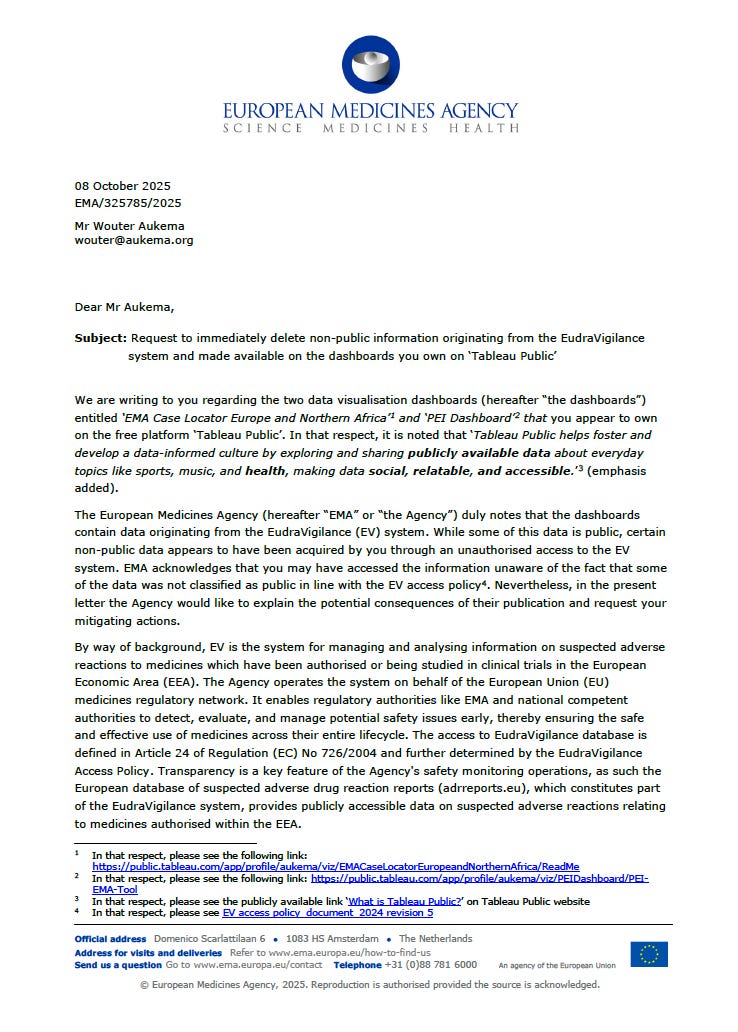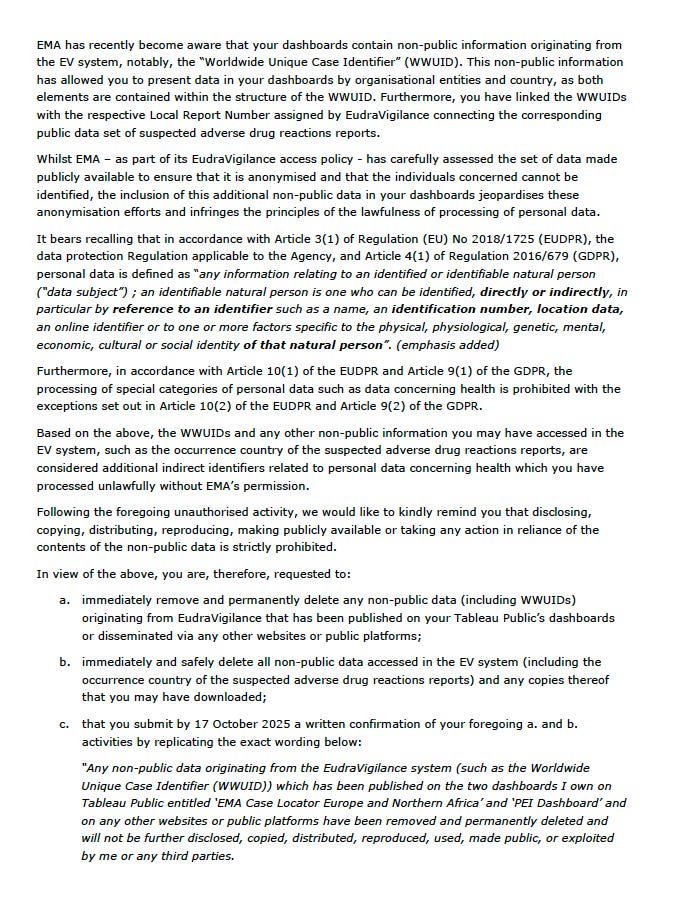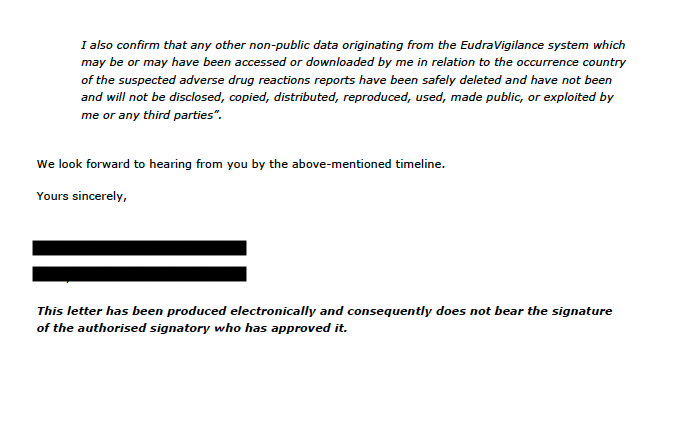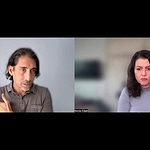At the Back to the Future conference in the Netherlands, I sat down with Wouter Aukema, an ethical hacker and renowned data analyst, whose groundbreaking work on the European Medicines Agency’s (EMA) EudraVigilance case safety reporting system has shed unprecedented light on the alarming adverse effects associated with the COVID shots.
Aukema’s innovative dashboards, built to make public pharmacovigilance data accessible and navigable, have empowered patients, doctors, and researchers to uncover critical insights into adverse events linked to medications, including the COVID shots. However, just days before his scheduled presentation, Aukema received a bombshell email from the EMA, demanding he delete his dashboards and all associated data—a move he describes as legal pressure that feels like censorship.
Aukema’s journey began with a mission to simplify access to the EMA’s EudraVigilance system, a public database housing millions of adverse event reports for medicinal products, including vaccines. Frustrated by the system’s complexity, which restricts users to viewing data for one product at a time, Aukema developed software—initially inspired by a tool from French scientists—to download and aggregate the entire dataset. His Tableau dashboards, a product of this effort, present a holistic view of adverse event reports across 6,000 medicinal products, including the COVID shots.
“The power of the dashboards,” Aukema explained, “is that it shows the reporting on all 6,000 different medicinal products, substances, vaccines, including the COVID vaccines.”
One of his most shocking findings was that the most reported adverse event for the COVID shots in the EudraVigilance system was, astonishingly, COVID-19 itself. Aukema also uncovered that adverse event reports for these vaccines dwarfed those for other drugs and vaccines over the past two decades—a finding he attributes partly to the sheer scale of global vaccination campaigns but one that raises questions about the safety profile of these shots.
Aukema’s dashboards include a “case locator” tool, which allows patients, doctors, or family members who file adverse event reports to verify how their submissions are recorded in the EMA’s system. This tool proved invaluable when Aukema filed a report on behalf of a family member hospitalized with acute pancreatitis following a COVID-19 mRNA vaccine. To his dismay, he discovered the case was misclassified in the EMA database, with the critical detail of hospitalization omitted and marked instead as “other,” a far less severe designation. After confronting the Dutch authority, LAREB, they admitted the error and promised to correct it. Aukema revealed that “dozens of people” who used his case locator found similar errors in their reports, ranging from missing side effects to misattributions of who reported the case—issues that could undermine the credibility of pharmacovigilance data.
But Aukema’s efforts to bring transparency to this public data have come at a cost. Just a day before his conference presentation, he discovered an email from the EMA in his spam folder, with a subject line that sent chills: “Request to immediately delete non-public information originating from the EudraVigilance system and made available on the dashboards you have on Tableau Public.”
The EMA claimed that Aukema’s dashboards, which include worldwide unique case identifiers and country-of-origin data, pose an “indirect” risk of identifying patients, a claim he finds baffling. “I have no access to patients’ birth dates or names,” he insisted. “Even if that data was available, I would never have downloaded it. My objective is to gather insights on patterns, not to find people.” The EMA’s letter not only demanded the deletion of Aukema’s dashboards but also urged him to destroy all data collected over years of work and ensure third parties do the same—a responsibility he finds absurd. Forced to comply, Aukema spent hours until 4 a.m. redacting his conference presentation to avoid sharing the contested data, a decision he made out of respect for the EMA’s concerns, even if he doesn’t fully agree.
“It comes across as a form of legal pressure,” he admitted. “My initial reaction is I’m being censored.” This isn’t the first time Aukema has faced pushback. In a 2022 interview on Dutch YouTube channel Blackbox, he highlighted the mysterious disappearance of 40% of serious adverse event cases from the EudraVigilance system over time. The EMA’s press office responded by accusing him of “misleading allegations” without clarifying what he got wrong or engaging in dialogue. “They didn’t correct me,” Aukema said. “They just accused me.”
This pattern of dismissal, coupled with the recent legal letter, raises questions about the EMA’s commitment to transparency, especially when their public database is touted as a hallmark of openness. Aukema contrasts the EMA’s approach with the U.S. pharmacovigilance systems, like VAERS, which freely share detailed case narratives and even state-of-residence data without apparent privacy concerns. “I do not understand why I’m not allowed to know whether a patient came from Germany, Poland, or Holland, whereas in the U.S., they have no problem sharing the state of residence,” he said. The EMA’s insistence that country-of-origin data could indirectly identify patients seems inconsistent, particularly when Aukema’s dashboards require a case identifier—accessible only to the reporter—to be useful. When asked what he believes the EMA’s true fears are, Aukema hesitated to speculate beyond the stated privacy concerns but expressed a willingness to engage in open dialogue. “I’m more than happy to have a debate with them,” he said, noting that his redacted presentation demonstrates his goodwill. Yet, the timing and tone of the EMA’s demands suggest an attempt to silence a researcher whose work has exposed uncomfortable truths about the COVID shots.
The full EMA letter can be viewed below.
If you find value in the work I do, please consider a paid subscription or make a one-off donation.











